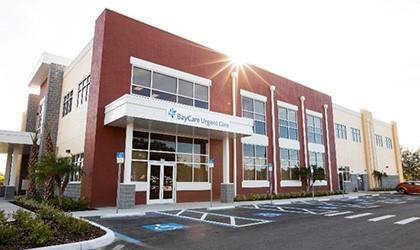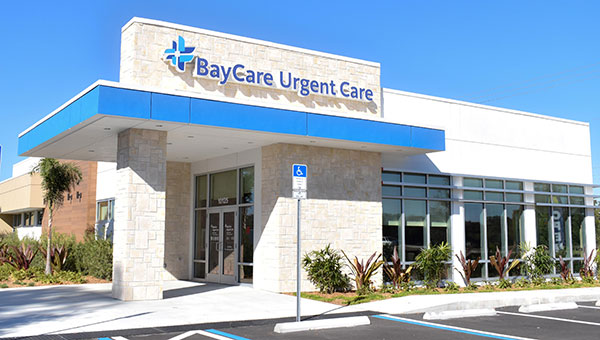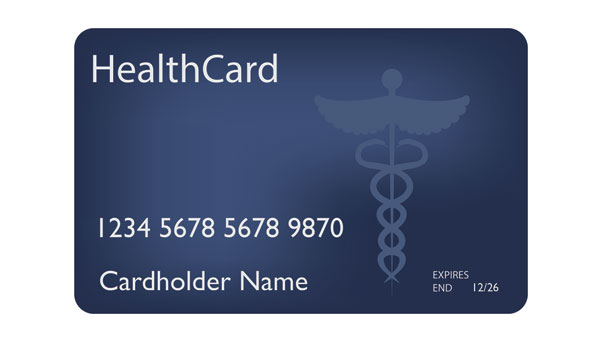Urgent Care
For life’s aches, pains, sprains and strains, BayCare Urgent Care can help. With locations across Tampa Bay and surrounding areas, we offer everything from preventive care such as physicals, to urgent care for colds and flu, for adults and children age 6 months and older. With extended evening and weekend hours, you can walk in when it’s convenient for you.
Results: 17 of Urgent Care Locations
711 S. Belcher Road
Clearwater, FL 33764 Phone: (727) 314-4848
Hours: Monday - Friday: 8:00AM - 8:00PM Saturday - Sunday: 9:00AM - 6:00PM
13670 Walsingham Road
Largo, FL 33774 Phone: (727) 593-9848
Hours: Monday - Friday: 8:00AM - 8:00PM Saturday - Sunday: 9:00AM - 6:00PM
3351 N. McMullen Booth Road
Clearwater, FL 33761 Phone: (727) 314-4774
Hours: Monday - Friday: 8:00AM - 8:00PM Saturday - Sunday: 9:00AM - 6:00PM
1599 66th St. N.
Saint Petersburg, FL 33710 Phone: (727) 317-3388
Hours: Monday - Friday: 8:00AM - 8:00PM Saturday - Sunday: 9:00AM - 6:00PM
2331 Fourth St. N.
Saint Petersburg, FL 33704 Phone: (727) 914-8566
Hours: Monday - Friday: 8:00AM - 8:00PM Saturday - Sunday: 9:00AM - 6:00PM
1155 S. Dale Mabry Highway
Tampa, FL 33629 Phone: (813) 609-3666
Hours: Monday - Friday: 8:00AM - 8:00PM Saturday - Sunday: 9:00AM - 6:00PM
3440 W Dr. Martin Luther King Jr. Blvd., Suite 100
Tampa, FL 33607 Phone: (813) 609-6835
Hours: Monday - Friday: 8:00AM - 8:00PM Saturday - Sunday: 9:00AM - 6:00PM
11178 State Road 54
New Port Richey, FL 34655 Phone: (727) 841-6609
Hours: Monday - Friday: 8:00AM - 8:00PM Saturday - Sunday: 9:00AM - 6:00PM
4821 U.S. Highway 19
New Port Richey, FL 34652 Phone: (727) 807-7176
Hours: Monday - Friday: 8:00AM - 8:00PM Saturday - Sunday: 9:00AM - 6:00PM
11921 N. Dale Mabry Highway
Tampa, FL 33618 Phone: (813) 609-3635
Hours: Monday - Friday: 8:00AM - 8:00PM Saturday - Sunday: 9:00AM - 6:00PM Closing 4:00PM on Thanksgiving Eve (11/26) CLOSED on Thanksgiving Day 11/27)
Even if you're not prepared for an injury or illness, we are. You don't need an appointment to be treated and with extended evening and weekend hours, we are here when you need us. Come to a BayCare Urgent Care Center for fast health care for adults and children ages two and older. En Español.
Conditions We Treat at BayCare Urgent Care
- Allergies
- Bites and Stings
- Burns
- Cold, Flu and Respiratory Infections
- Constipation
- Cuts, Scrapes and Wounds
- Ear Ache and Pain
- Eye Irritation and Redness
- Fever
- Headaches and Dizziness
- Inflammation
- Muscle and Joint Ache
- Nausea, Vomiting, Diarrhea
- Neck and Back Pain
- Pink Eye
- Rashes and Skin Problems
- Sexually Transmitted Infection (STI/STD)
- Sinus Infection
- Sore Throat and Cough
- Sprains and Strains
- Stomach Ache and Pain
- Swollen Glands and Lymph Nodes
- Urinary Tract Infections (UTI)
Medical Services offered at BayCare Urgent Care
- Camp, School, and Sports Physical Exams
- COVID-19 Testing
- Flu Shots and Immunizations
- Laboratory Testing (as needed)
- Nebulizer Treatment
- Walk-In Drug Testing
- X-Rays

Check Your Symptoms
Not feeling well? Describe your symptoms and we’ll guide you where to go for care.
When to Use Urgent Care
Urgent Care centers might be the best possible solution for illnesses or injuries that happen on weekends or after office hours. Urgent care centers are equipped to treat a variety of conditions and injuries with on-site lab and radiology services. You will typically receive care quicker and at a lower cost than at an ER.


Occupational Health
We offer a full range of occupational health services to support you in maintaining a healthy, safe workforce while reducing the overall cost of health care for your company and employees.




